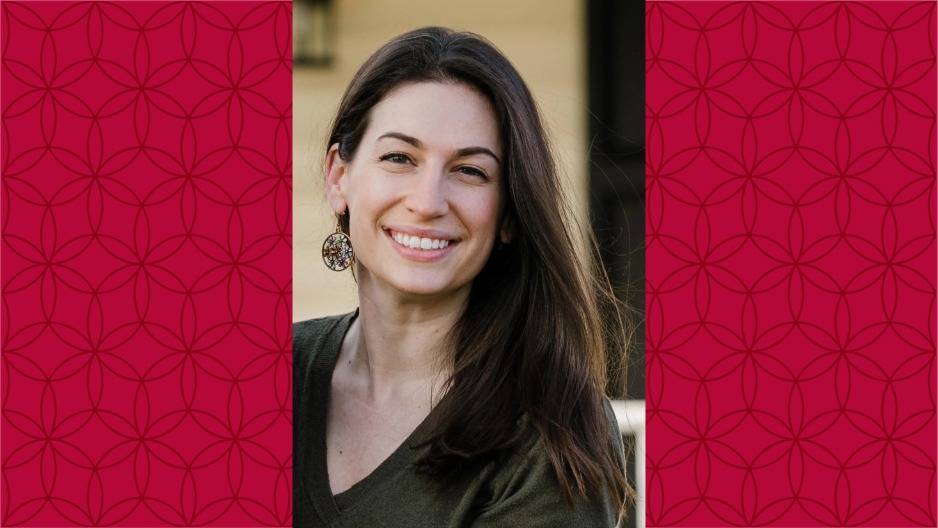When Sophie Farley, CLA ‘12, arrived at Temple University, she didn’t yet know exactly where her studies would take her, but she did know one thing: she had a lot of questions.
“I was a ‘why?’ kid growing up—why do things happen this way? Why do things work this way?” she says.
That innate curiosity eventually drew her toward neuroscience and the endless, ever-evolving set of questions that is the human brain.
“Neuroscience presented an opportunity to tackle something we don’t know everything about yet,” explains Farley. “It made me think, ‘Well, maybe I can answer these questions? Maybe through research, maybe through some other avenue, but this is how I start.’”
In her sophomore year, Farley joined what turned out to be the inaugural class of neuroscience majors at the College of Liberal Arts. She enjoyed being part of a small, tight-knit cohort and found that the coursework scratched a very particular itch.
“It took the science I desired and made it correlate with something I was so incredibly interested in,” she says. “Neuroplasticity was especially fascinating because it has to do with repair and the way things are shaped. One course, Cellular Neuroscience (NCSI 2122), brought chemistry and biology together and related it to the brain—it all felt like it had a little more purpose.”
Shortly before graduating, Farley spent time doing lab work at Baltimore’s Kennedy Krieger Institute, but she found that research lacked the urgency and collaboration she craved. “I wanted to answer questions with research,” she says, “but I didn’t feel as tapped into the ‘big picture’ as I had hoped.”
That realization soon turned into an aspiration to practice medicine, specifically neurosurgery. On the advice of a colleague, Farley began exploring the idea of a career as a physician assistant (PA), and in 2016, she received her Master’s degree from the PA program at Salus University (now Salus at Drexel University).
“A physician assistant is a medical provider licensed by the state and board-certified to practice in collaboration with a physician,” she explains. “We can prescribe medications, diagnose and treat patients, and be first assistant in surgery. It was a great option for me. I could get my training done in two years and work with others in a team-based environment while still practicing a neurosurgical subspecialty.”
Farley began practicing as a neurosurgery PA in 2017, moving her training to Penn Medicine. “I did a lot of perioperative management in neurosurgery at Penn, and I adored everything I learned there,” she says. “It was a great opportunity to see really cutting-edge medicine and work with some brilliant people in a really stressful environment.”
In 2019, the COVID-19 pandemic hit. As cases mounted, hospital workers faced intense pressure and long hours. Farley had just become a mother, and she was beginning to crave a little more balance.
“I was still at Penn at the time, and COVID was really hard on big city hospitals,” says Farley, who became pregnant with her second child during the pandemic. “I wanted to maintain a career in neurosurgery, but I wanted to be able to spend more time at home with my family.”
That shift led her to education. “I always knew I would one day take the step into education; I just didn’t think it would be this soon,” she says. “I reached out to one of my Temple professors, Dr. Cynthia Gooch, who was an incredible mentor. I asked her a lot of questions about transitioning into teaching.”
Now a faculty member in Arcadia University’s physician assistant program, Farley teaches neuroscience and neuroscience medicine content across multiple courses. She’s also pursuing a Master of Public Health, expanding her ability to integrate complex social and public health issues into her education. “There’s an endless list of things I wish I had been exposed to in school that I’m now able to bring up in conversation,” she says. “It has completely changed my perspective and how I practice.”
In a way, Farley has built a career that mirrors the very subject she has dedicated her professional life to: adaptable, resilient and continually developing new pathways. In her current role as an educator, she has remained sharp, inspired, and above all, curious.
“I stay on top of the most up-to-date recommendations and guidelines—if I’m going to teach it, I need to know it,” says Farley. “There have been some really interesting advances in medicine, especially in neuro-oncology, and it’s all really exciting.”

